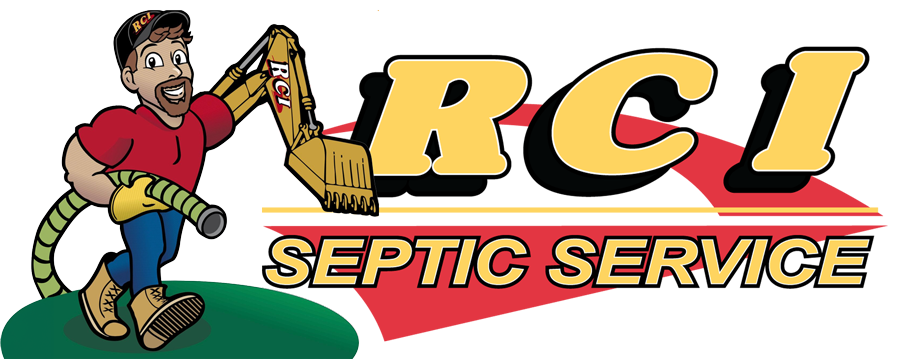Top Tips for Choosing the Best Septic System Installer Near You
Need a septic system installer? Hiring the right professional ensures your system works efficiently and lasts longer. In this guide, you’ll learn why it’s important to hire a pro, what to look for in an installer, and the steps in the installation process.
Key Takeaways
- Proper septic system installation is crucial for functionality, requiring expertise in local regulations and site conditions.
- Key factors for selecting a septic installer include experience, certifications, and customer reviews to ensure quality and compliance.
- Regular maintenance, including septic tank pumping and careful management of soil conditions, is essential for the longevity of septic systems.
Understanding Septic Systems
Septic systems treat sewage from homes without municipal sewer access, protecting public health and the environment. A typical septic system consists of two main components: a septic tank and a drainfield. The septic tank’s job is to separate solids and grease from wastewater, while the drainfield disperses and filters the effluent into the ground. Understanding how septic systems function and subsurface sewage disposal systems is essential for proper maintenance.
Once waste water enters the septic tank, it separates into three layers: solids settle at the bottom, scum (grease and oils) floats to the top, and the liquid effluent remains in the middle. The effluent then flows into the drainfield, where it is further treated by filtering through the soil. This process allows impurities to break down and purifies the water before it reenters the groundwater.
In New Hampshire, as in many other places, a permit is required before installing a new septic system. This ensures that the system complies with town, county and state regulations, safeguarding both the environment and the community.
Why You Need a Professional Septic System Installer
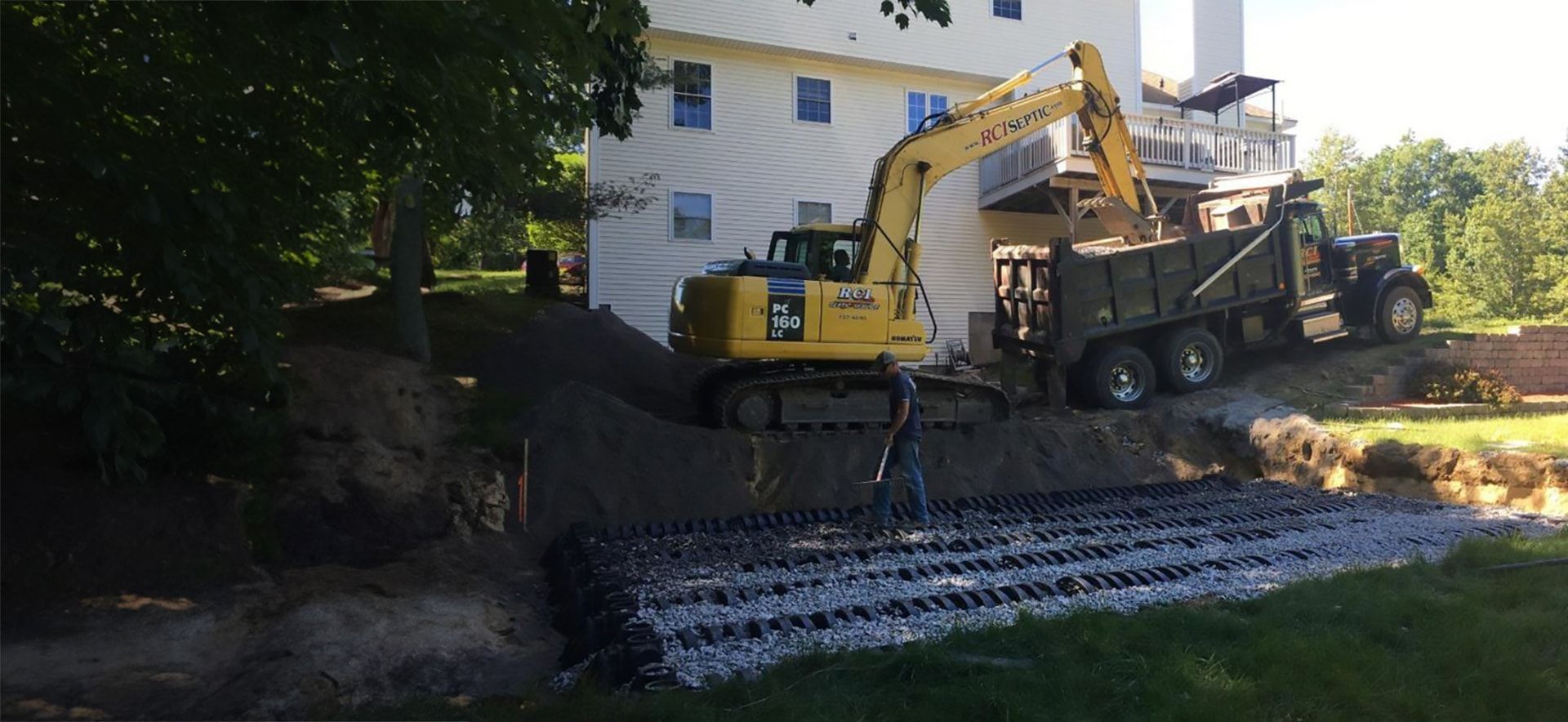
Hiring a professional septic system installer is a necessity. A professional’s expertise ensures that your septic system is installed correctly, providing peace of mind and avoiding future headaches. Improper installation can lead to system failures, costly repairs, and environmental hazards.
A qualified installer greatly influences the effectiveness and longevity of your septic system. Professionals understand the complexities of septic tank installation, including soil conditions and local regulations. This expertise minimizes the risk of future repairs and maintains the system’s efficiency.
Consider the installer’s industry experience, knowledge of local regulations, and service quality. These factors are crucial in ensuring that the installation process is smooth and that the system functions optimally for years to come.
Key Factors to Consider When Choosing a Septic System Installer
Choosing the right septic system installer requires more than picking the first name you find. Several factors influence the quality and reliability of the installation, impacting the long-term success of your septic system. Experience, certifications, and customer reviews are all critical aspects to consider.
Experienced septic system installers bring essential knowledge for navigating the complexities of septic system installation. Certifications and licenses verify that the installer meets industry standards and complies with local regulations.
Additionally, customer reviews and testimonials provide insights into the installer’s reliability and quality of service. Let’s delve into these factors in more detail.
Experience and Expertise Matter
Experience is a critical part of choosing a septic system installer. Installers with significant experience can effectively navigate the complexities of septic system installation, including site evaluation and precise execution. Their deep understanding of the process allows them to handle unexpected challenges with ease, ensuring a smooth installation.
For example, experienced installers often have a deeper understanding of soil conditions and drainage patterns, which can vary depending on the location. This knowledge makes a significant difference in the system’s performance and longevity. Therefore, choosing an installer with a long history in the field is a wise decision.
Checking Certifications and Licenses
Verifying an installer’s licenses and certifications is crucial to ensuring they meet industry standards and comply with local regulations and installer permits. These credentials are a testament to the installer’s commitment to following safety and construction standards, which can vary significantly by region.
Hiring a licensed installer guarantees that your septic system will be constructed in accordance with local health department requirements. This compliance is essential for the system’s safe and efficient operation, protecting your health and the environment.
Reading Customer Reviews and Testimonials
Customer feedback is a valuable resource for assessing the reliability and quality of an installer’s services. Reviews and testimonials provide firsthand accounts of previous customers’ experiences, offering insights into the installer’s professionalism and workmanship.
Customer reviews help filter out unreliable installers and identify those with proven success. Testimonials highlight the strengths and weaknesses of an installer, guiding your decision based on others’ experiences.
The Septic System Installation Process
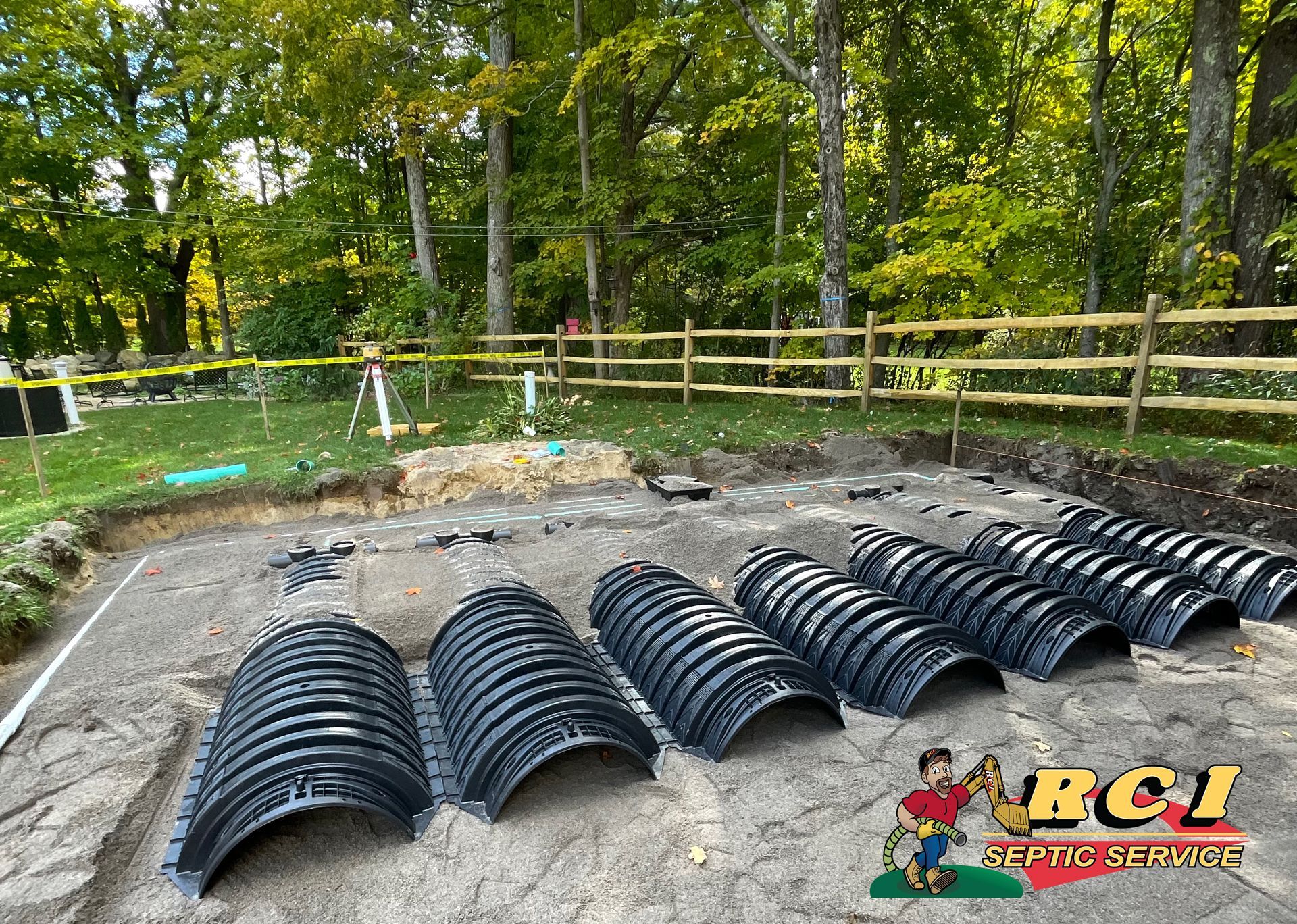
The septic system installation process involves multiple stages, from initial site assessment to final inspection. Each stage is crucial for ensuring the system functions correctly and complies with local regulations. Knowing the installation process helps you prepare and make informed decisions.
The stages include site assessment and soil testing, design and permitting, installation, and connection of the distribution box system. Each stage has its own set of considerations and requirements, which we will explore in the following subsections.
Site Assessment and Soil Testing
The first step in the septic system installation process is a thorough site assessment and soil testing. Experienced professionals accurately evaluate site conditions and recommend solutions. Soil testing determines if the land can properly filter wastewater.
Soil tests evaluate permeability, drainage, and soil type to confirm suitability for a septic system. A geotechnical evaluation may involve tests for soil bearing capacity and percolation rates, ensuring that the system will function correctly once installed.
Design and Permitting
Once the site is deemed suitable, the next step is design and permitting. Local authorities must issue permits based on regulatory guidelines before installation can begin. These permits ensure compliance with legal regulations governing septic systems.
The design must also comply with local health department requirements to ensure the system meets safety standards. Successfully navigating this phase is crucial for the safe and legal installation of a septic system.
Installation and Connection
The actual installation process involves several critical steps. Terrain, soil, and drainage patterns should be considered for septic tank placement. Typically, the drainfield is installed first, followed by the septic tank.
Connecting the septic system to the house involves digging, trenching, and pipe installation. Proper alignment and connection of these pipes are crucial for the system’s functionality and efficiency.
Common Challenges During Septic System Installation
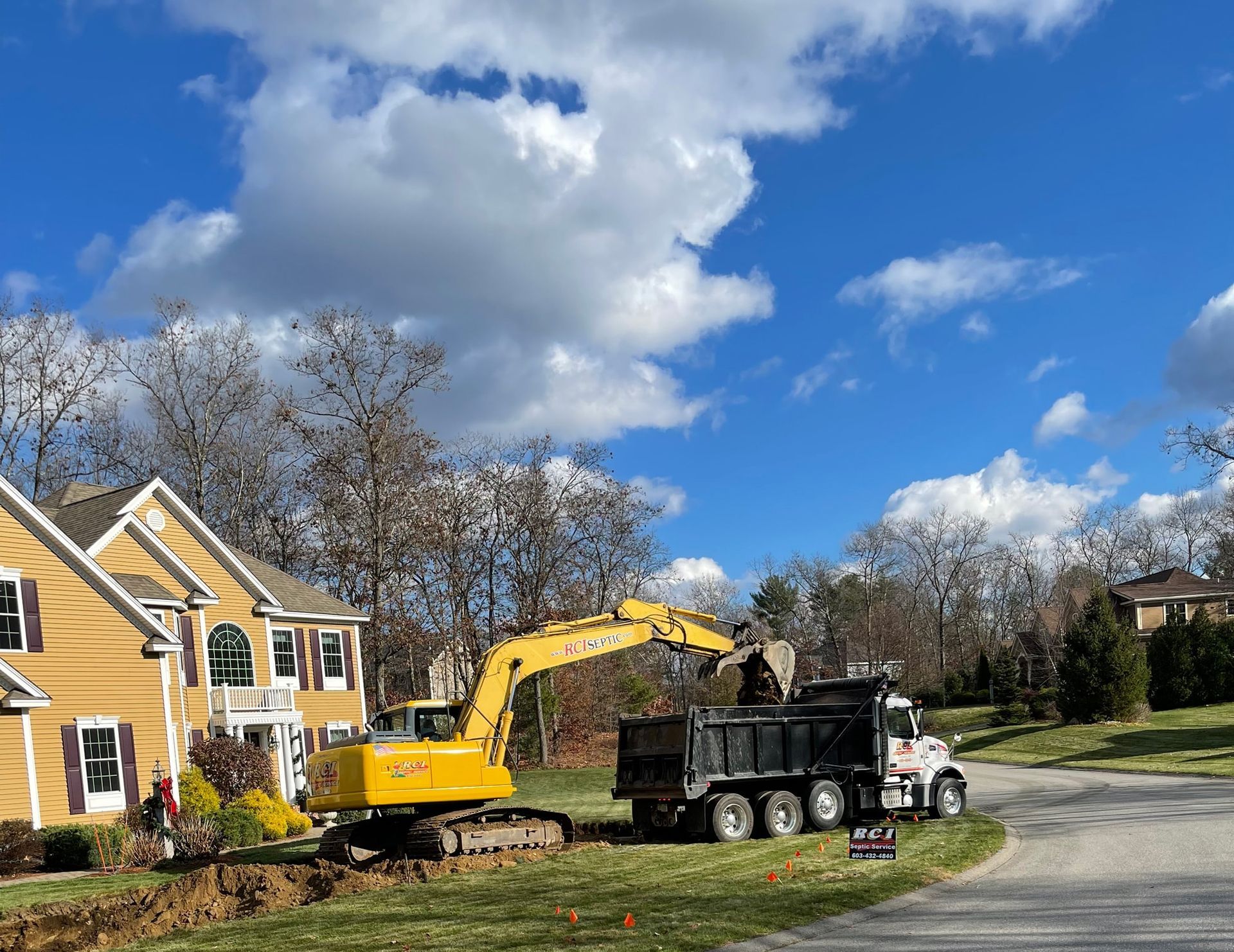
Septic system installation can present several challenges, which, if not properly managed, can lead to significant issues. Improper installations can lead to environmental hazards and costly repairs. Excavation work must be careful to avoid damaging underground utilities.
Proper alignment and connection of pipes are crucial for the septic system’s functionality. Any misalignment or poor connection can disrupt the system’s operation, leading to backups and other issues. Ensuring precise and careful installation is essential to avoid these pitfalls.
Maintenance Tips After Installation
Regular maintenance is key to the longevity and efficiency of your septic system after installation. Professional installation often results in better system efficiency and longevity. Septic tanks should be pumped every one to three years, depending on usage.
Extreme weather conditions can impact your septic system. Heavy rainfall can saturate the drain field, causing absorption issues, while freezing temperatures can freeze pipes and tank components. Prolonged dry weather can harden drain field soil, disrupting bacterial balance and slowing waste breakdown. Additionally, issues with the leach field can arise under these extreme conditions.
To maintain your system, avoid parking or driving on the drainfield to prevent soil compaction and damage to the pipes. Proper waste disposal is crucial; only human waste and toilet paper should be flushed to avoid clogging or harming the system. Call a professional immediately if liquid comes out of the septic tank valves.
How RCI Septic Service Can Help
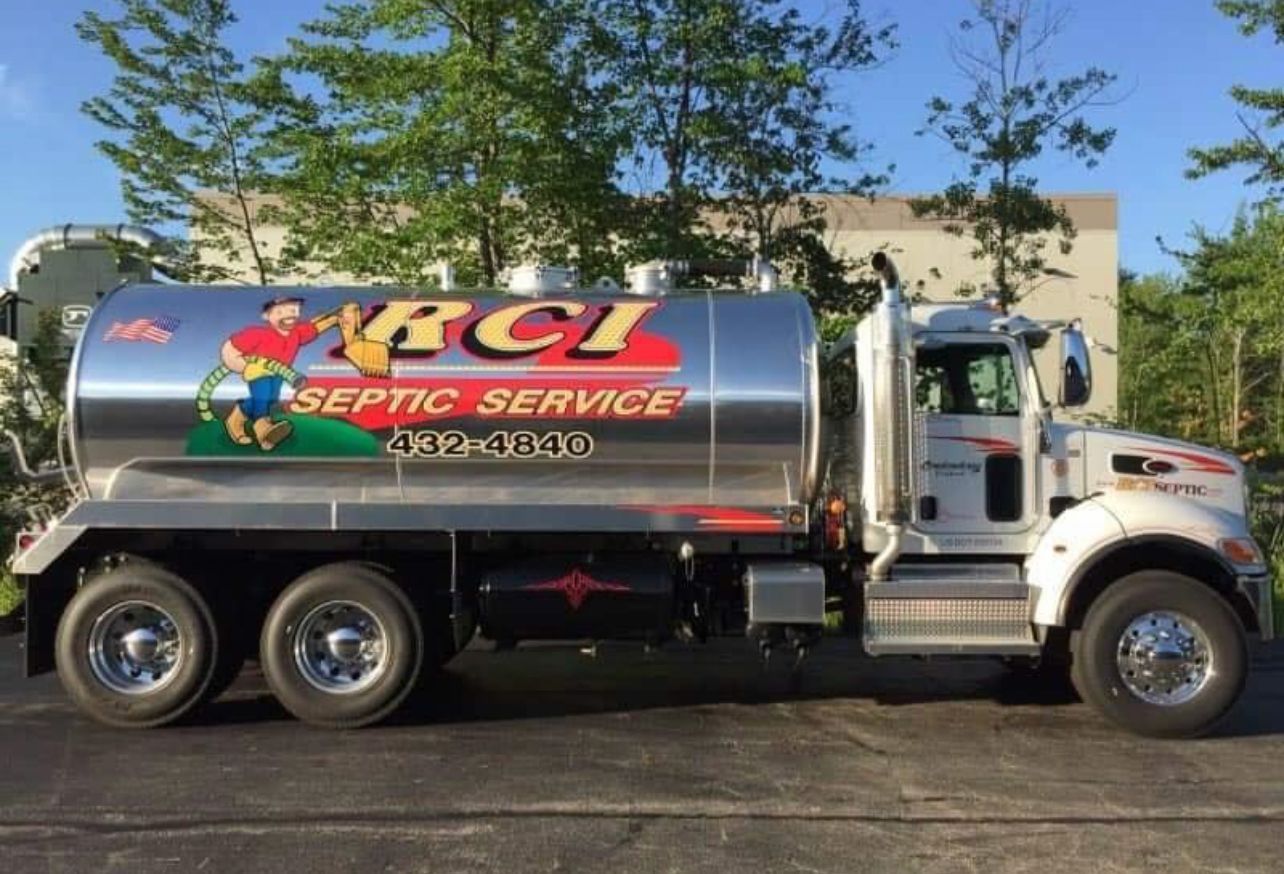
RCI Septic Service has been in operation for over 25 years, demonstrating their expertise in septic system installation and maintenance. They provide a comprehensive range of services, including septic pump-out, installation, repair, and replacement.
The company focuses on eco-friendly septic solutions and is dedicated to maintaining high standards in their installation practices. RCI Septic Service, committed to customer satisfaction, ensures your septic system is installed correctly and functions efficiently.
Financing Your Septic System Project
Financing a septic system project can significantly concern homeowners. RCI Septic Service collaborates with St. Mary’s Bank to offer flexible financing options, helping manage the costs of septic system installations and repairs.
Homeowners can explore tailored loan options directly through RCI Septic Service’s website, ensuring they find the right financial support for their septic needs. These financing solutions make it easier to undertake necessary septic system projects without financial strain.
Summary
Selecting the right septic system installer is crucial for ensuring the efficiency and longevity of your system. This guide has provided valuable insights into understanding septic systems, the importance of professional installation, key factors to consider when choosing an installer, and the stages of the installation process. Additionally, we discussed common challenges, maintenance tips, and how RCI Septic Service can assist you.
By following the advice and tips outlined in this guide, you can make informed decisions that will help keep your septic system running smoothly. Whether you’re installing a new system or maintaining an existing one, the right knowledge and professional support are essential for a septic-secure home.
Frequently Asked Questions
Why is it important to hire a professional septic system installer?
It is essential to hire a professional septic system installer to ensure proper installation and compliance with local regulations, which ultimately minimizes the risk of future repairs. This expertise is crucial for the system's long-term functionality and your peace of mind.
What factors should I consider when choosing a septic system installer?
When choosing a septic system installer, focus on their experience, certifications, licenses, and customer reviews to ensure you select a reliable and quality service provider.
How often should I maintain my septic system?
To ensure optimal performance of your septic system, it is essential to pump the tank every one to three years and conduct regular inspections. This proactive maintenance helps prevent costly issues and maintains system efficiency.
What services does RCI Septic Service provide?
RCI Septic Service provides septic pump-out, installation, repair, and replacement services, emphasizing eco-friendly solutions.
Are there financing options available for septic system projects?
Yes, financing options are available for septic system projects, such as those offered by RCI Septic Service in collaboration with St. Mary's Bank for installations and repairs.
